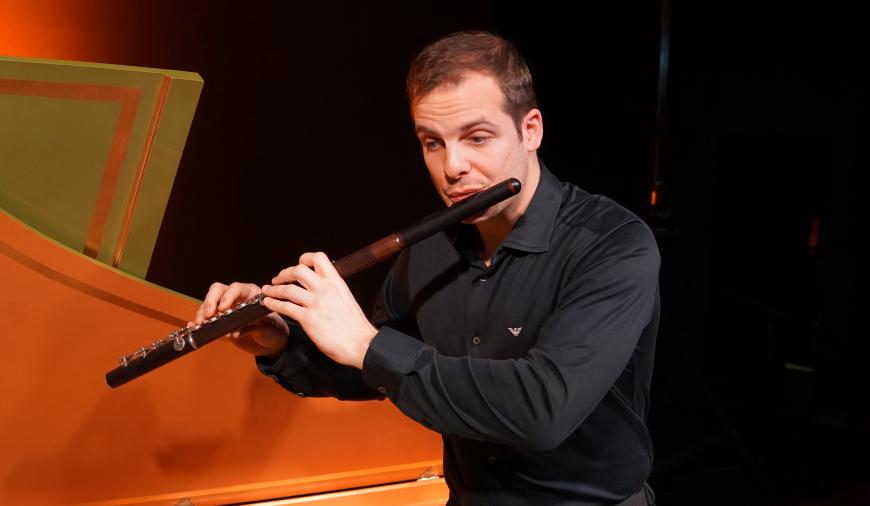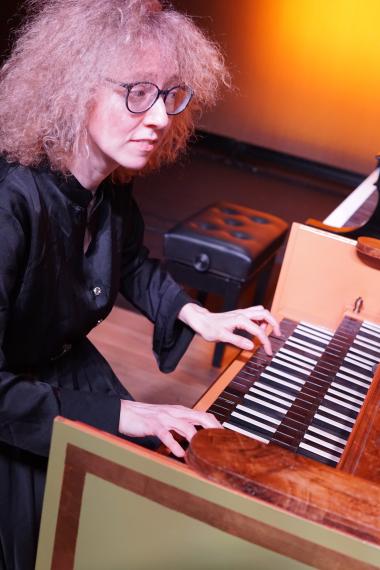
In its 34 years in operation, Camerata Pacifica has touched on the repertoire of J.S. Bach only periodically. But when it does, there’s a sense of retracing institutional roots. The chamber project was launched in 1990 by flutist Adrian Spence under the moniker The Bach Camerata, with the composer’s Brandenburg Concertos supplying the group’s original soundtrack.
On Friday night at Hahn Hall in Montecito, Camerata’s Santa Barbara waystation, Bach’s music opened a varied early-to-modern program by the skilled Swiss flutist Sébastian Jacot. Jacot, a principal with the Berlin Philharmonic (he joined the orchestra in 2022, after having been tapped for the same position with the San Francisco Symphony), was making his West Coast recital debut. He began with Bach’s Sonata in A Major, BWV 1032, accompanied on the harpsichord by Camerata’s principal pianist, Irina Zahharenkova, a captivating presence at the keyboard. Zahharenkova added a prelude from The Well-Tempered Clavier as an unplanned concert appetizer.
Both musicians are commanding yet subtle interpreters, a critical balance on Baroque turf especially. The integrated power of shared listening and expression was immediately apparent in the Bach and also later on, in the flashy showpiece of Andre Jolivet’s Chant de Linos.

Elsewhere on the program, each player was given a chance to shine in solo mode. A certain mad inventive streak informs the invigorating five-part Melopa by Czech composer Kryštof Mařatka, its challenges easily met by Zahharenkova. Contrasting musical devices come in and out of focus, neurotic descending flurries colliding against spare, angular gestures and later leading to intense smear tactics across the harpsichord’s two manuals. Finally, tolling atonal clusters induce a wary calm. As played here with the proper admixture of chaos and control by Zahharenkova, Melopa was a memorable and visceral concert experience, the most memorable work of the night.
For his solo showcase, Jacot took on Liminal Highway by Christopher Cerrone. In keeping with the American composer’s interest in blending traditional acoustic instruments, unusual settings, and electronics, the piece calls for flute and piccolo but also a brief melodic segment blown on variously emptied Budweiser bottles lying in wait on a table. The sonic palette and time frame are enhanced electronically by the use of looping and strategically deployed reverb and delay.
As suggested by the title — and by movements headed “When You Fall Asleep in Transit” and “Between Consciousness and Sleep” — Liminal Highway evokes a dream state. And it’s a relatively pleasant one, as Cerrone’s tonal language suggests, though the piece verges on ambient music at times and can feel wanting for contrasting touches of tension. But Jacot’s nimble handling of the score’s switch-hitting instrumentation and stage maneuvers, as well as the music’s agreeable essence, lulled us into the soothing folds of this 17-minute liminal adventure.
Bringing the program back to more traditional classical terrain, the pair turned from the furious jumping of Jolivet’s work to the genteel, parlor-ready close of Mozart’s Rondo in D Major, K. Anh. 184.




